Buy Pangraf : Tacrolimus 0.5 mg Capsules 60’S Online For Sale
$113.36
Brand Name : Pangraf
Composition : Tacrolimus
Manufactured by : Panacea Biotec Ltd.
Strength : 0.5 mg
Form : Capsules
Packing : Pack of 60 Capsules
Prescription Required *
Pangraf is a prescription medicine used to prevent organ transplant rejection. It contains Tacrolimus as its active ingredient which helps to prevent the immune system from attacking the transplanted organ or tissue. Tacrolimus belongs to a class of drugs known as immunosuppressants.
Composition:
Each Pangraf capsule contains 0.5 mg of Tacrolimus as its active ingredient. The inactive ingredients include lactose monohydrate, pregelatinized starch, croscarmellose sodium, and magnesium stearate.
Uses:
Pangraf is primarily used to prevent transplant rejection after certain organ transplant procedures such as kidney, liver, and heart. It works by suppressing the immune system, thus preventing it from attacking the transplanted organs.
HOW TO USE:
Pangraf should be taken orally, once or twice daily, or as directed by your healthcare provider. Generally, it is recommended to take the medicine at the same time each day to maintain a consistent level of the drug in the bloodstream. Do not crush or chew the capsules, swallow them whole. It is crucial to follow your doctor’s prescribed dose and regimen.
Dosage:
The dose of Pangraf depends on several factors such as the patient’s age, weight, and medical condition. The recommended starting dose for an adult transplant recipient is 0.1-0.15 mg/kg/day. The maximum daily dose should not exceed 0.3 mg/kg/day.
Storage Conditions:
Pangraf capsules should be stored at room temperature, away from heat and moisture. They should be stored in their original packaging and should not be exposed to direct sunlight. Keep the medicine out of reach of children.
Mechanism of Action:
Pangraf works by inhibiting the activation of T-lymphocytes, which are a type of white blood cells. These cells are responsible for recognizing and attacking foreign substances or tissues in the body, including transplanted organs. By suppressing the immune system, Pangraf helps to prevent organ rejection.
Precautions:
Pangraf should be used with caution in patients with a history of liver or kidney disease, high blood pressure, high cholesterol, diabetes, or a weakened immune system. The medicine may interact with other medications, so inform your doctor about all the medicines you are taking.
Contraindications:
Pangraf is contraindicated in patients who are allergic to Tacrolimus or any of its ingredients. It should not be used by pregnant or breastfeeding women or patients with an active infection.
Interactions:
Pangraf may interact with other drugs, including antibiotics, antifungal agents, and certain heart medications. Inform your doctor about all the medicines you are taking.
Overdose:
In case of an overdose, seek emergency medical attention immediately. Overdose symptoms may include nausea, vomiting, headache, kidney damage, or seizures.
Side Effects:
Common side effects of Pangraf include headache, tremors, diarrhea, nausea, high blood pressure, and insomnia. If any of these side effects become severe or persistent, inform your doctor. Serious side effects may include liver or kidney damage, infection, or cancer. Seek medical attention immediately if you experience any severe side effects.
Be the first to review “Buy Pangraf : Tacrolimus 0.5 mg Capsules 60’S Online For Sale” Cancel reply
Related products
Immunosuppressive Drugs
Immunosuppressive Drugs
Immunosuppressive Drugs
Buy Sandimmun Neoral : Cyclosporine 50 mg Capsules 50’S Online
Immunosuppressive Drugs
Buy Sandimmun Neoral : Cyclosporine 100 mg Capsules 50’S Online
Immunosuppressive Drugs


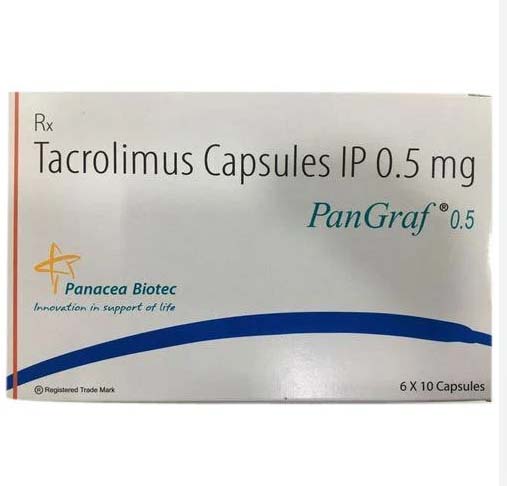

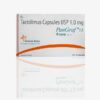
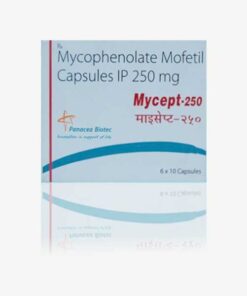
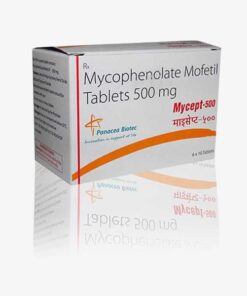
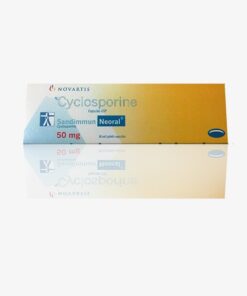
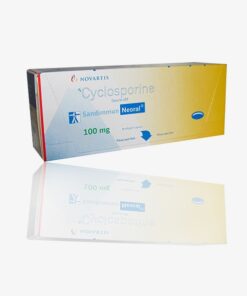
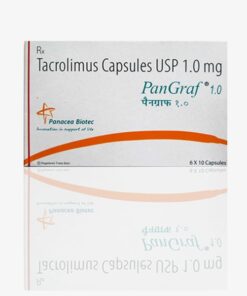
Reviews
There are no reviews yet.